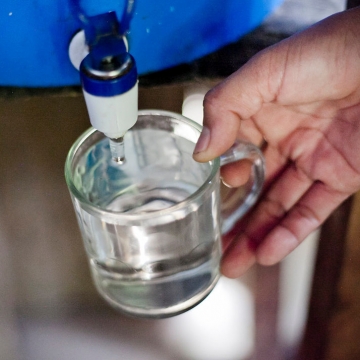Firms’ willingness to invest in a water fund to improve water-related ecosystem services in the Lake Naivasha basin, Kenya
A valuation scenario was designed using a contingent-valuation approach and presented to decision makers in business firms in Kenya’s Lake Naivasha basin to test how applicable a water fund might be as a potential financing mechanism for a payment for water-related ecosystem services scheme. The findings indicate that measuring a firm’s willingness to invest in ecosystem services could help determine whether a firm would invest and engage with other stakeholders to pool their investments in ecosystem services.




